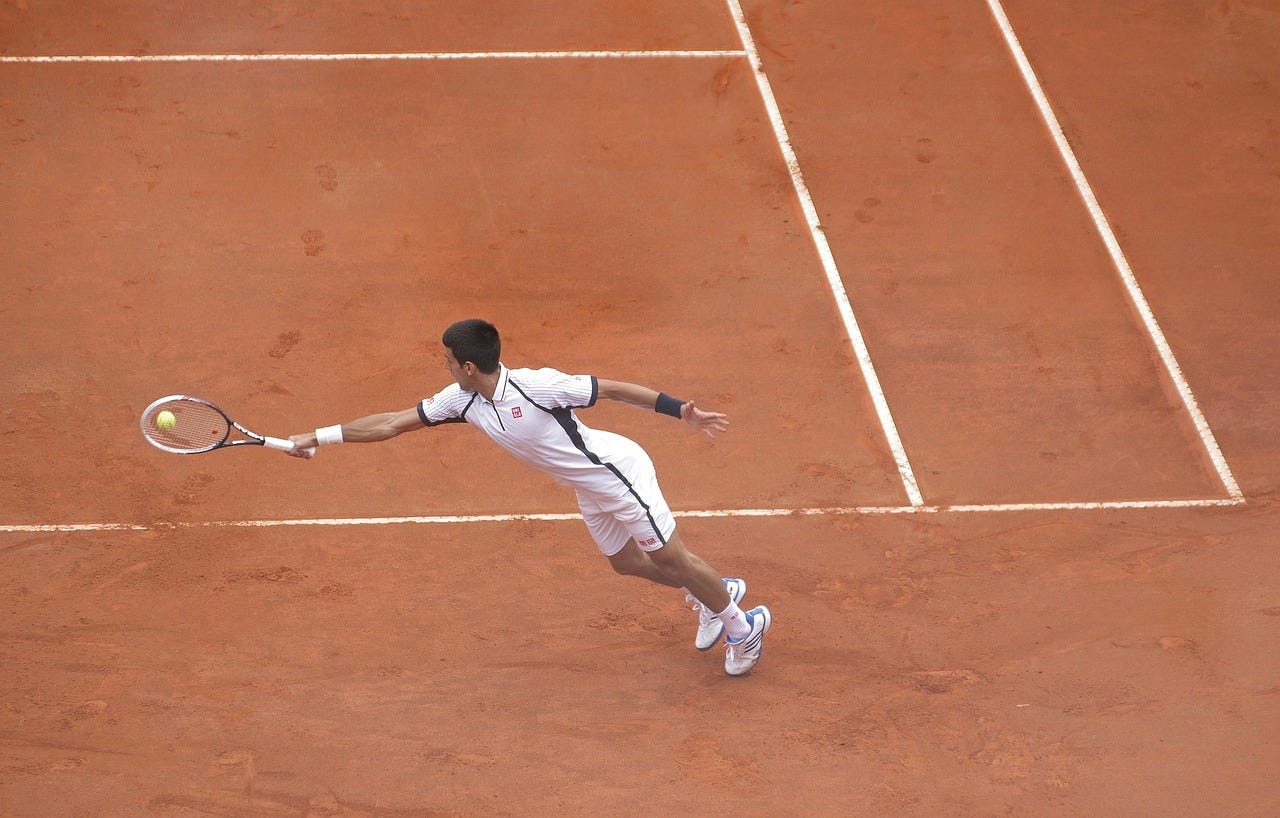Learn to Love Losing
The Secret to Success
Imagine the extraordinary tale of an industry titan, whose remarkable biography is woven with the threads of determination and resilience.
“In the depths of her childhood, she was but a girl whose dreams seemed far-fetched, as discouraging whispers surrounded her. Yet, in the face of skepticism, she clenched her teeth, refusing to surrender to the limitations imposed upon her. She embarked on an arduous journey, a relentless battle against adversity, with an unyielding spirit to conquer.
A pivotal moment etched in her memory was a bitter defeat that left an indelible mark upon her soul. The taste of failure was so bitter, so profoundly detested, that she made an unbreakable vow never to experience such agony again. With an unwavering resolve burning within her, she immersed herself in a relentless pursuit of greatness, pushing the boundaries of her own potential.
Days turned into nights as she honed her skills, harnessing a talent that seemed to transcend ordinary limits. The hours melted away in her passionate dedication, her unwavering commitment to the craft she held dear. Each day presented a new challenge, a fresh opportunity to overcome, to outshine any opponent who dared cross her path.
And as the echoes of her victories reverberated across the industry, she stood tall, an emblem of unshakable strength and unparalleled achievement. Her name became synonymous with triumph, her accomplishments rewriting the very essence of what it meant to succeed. The girl who was once told she couldn't dared to defy the odds, carving her own path through sheer determination and unrelenting passion.”
Sounds like an exceptional story right? But by definition, an exceptional story is the exception, not the rule, and thus, this is not the only, or even the most likely path to success.
It is possible that you are ridiculously driven with almost a pathological need to win, and a resolute confidence in your destiny that can survive any setback. Some biography-worthy individuals fit this to a T. But if that’s intimidating to you, fear not, there is a path that can work for the rest of us: learning to love losing (as well as winning). Let’s call this new mindset the “Lover” and the competitive mindset the “Fighter” and then examine how the former mindset can result in success for less.
Losing = Learning
It’s commonly accepted that innovation requires failing, but it’s only seen as a pitstop on the way to eventual success. It’s not something to enjoy, but merely a tedious checkpoint to endure. Losing however, is of a much more personal nature, a fierce clash of egos. Failure is simply failure. But losing requires losing to someone else. There is an automatic labeling that makes someone a winner, and the other person a loser. And no one wants to be branded a loser.
Let us delve deeper into the realms of games and competitions. Take the enthralling realms of tennis or the burgeoning popularity of pickleball. Amidst the countless matches played, only a fraction carry substantial stakes. The majority serve as practice sessions, training grounds, and sources of pure enjoyment. Within each and every point lies an opportunity for victory or defeat, a microcosm of the winners' tale.
If the goal is to become a better player and maybe ultimately win Wimbledon, then let’s look at what you can gain from each point. The “Fighter” tries her best. When she wins a point, she celebrates, pumping her fist in the air. But when she loses a point, she gets upset, yelling at anything and anyone in her way. Her unyielding determination demands unwavering confidence, prompting her to attribute losses to external factors: the net, the paddle, the wind —a way to preserve her unshakeable resolve.
When the “Lover” loses a point, she looks upon it with curiosity. What did I do wrong? What could I have changed in my stroke, my positioning, or my judgement? She logs this into her brain and enjoys a surge of happiness knowing that she just learned something new or, more likely, reiterated something she already new.
Reiterating is important. It’s not just about knowing what to do, but about training our mind and body to do this naturally. Everyone KNOWS how to lift a weight. But we still need to actually lift the weight to get stronger. Every time we make a mistake and recognize it and accept it into your brain, you are doing another repetition, fortifying our mental and emotional muscles.
A “Lover” will learn to love training and be adapted to keep at it. She will learn to let go of the fear of losing, and replace it with the thrill of learning. The one who claims victory in a point relishes a fleeting moment of jubilation, while the one who succumbs to defeat uncovers a wealth of wisdom.
Losing is inevitable
Of course there are other ways to learn rather than through competition, such as training in isolation. But increasingly, the world is connected, and the work we do requires collaboration and competition with others. Situations that result in winning or losing are hard to avoid, and both the “Lover” and the “Fighter” should seek opportunities to compete.
The “Fighter” may do anything to win, and may hate the saying “You can’t win them all”. But statistically speaking, most people will lose at least half the time (more if there are greater than two people in the competition). This amount of heart-rending losses can take a heavy toll on even the self-confidence of even the most determined of “Fighters”.
The “Lover” however, stays positive “win or lose”. He can even find delight in the joy others receive when they win (enabled by his loss). Being a good and gracious loser is an important skill. By celebrating the other’s win along with your own loss, you can build empathy and friendships, turning competitors into collaborators and future allies.
So while a “fighter” may have to endure a loss, a “lover” gains knowledge, training, and allies.
You Should be Losing More: hopping leagues
If I met a person who was in the top league of their sport, and they told me they won every game this year, I’d say, “Wow, that’s amazing”. However, if I met someone randomly who told me the same thing, I’d think “You’re not in the right league”.
It is very difficult to love winning and not also love competing against people you can win against. The result of this, is that the “Fighter” may have a tendency to avoid losing by staying in the same league rather than compete against stronger opponents. What’s wrong with this? Isn’t it better to be a big fish in a small pond? In “Outliers” Malcolm Gladwell postulates this exact point. At EARLY AGES, being a big fish in a small pond helps build the confidence people need to succeed. Being a big fish helps the “Fighter” mentality succeed. But we’re not all “Fighters”, and ultimately, the goal is to progress, not defend the ego.
The “Lover” enjoys the challenge, is not afraid of losing and looks forward to what she can learn from playing people better than her. As such, she is more willing to move up a league, to learn, and to continue to move up leagues. Why is this important?
Let’s take baseball. The MINIMUM wage (yes, there is a minimum) for Major League Baseball is $720,000 a year. Move one league down, and the highest paid player in AAA league makes $35,800. Yes, this is the world we live in.
The average tech salary in India is $8600 a year. In Silicon Valley, it’s $232000. The 5x difference in cost of living does not make up for the 27x difference in compensation. Where you play is often much more important than being the best on the field.
You can still like Winning
Loving to lose isn’t about hating winning; it’s about having a sustainable healthy relationship with losing. We all still want to win in the end, but it’s possible to separate out the real important things to win (your dream job, your dream spouse, Wimbledon), from all the little competitions that fill every day of our lives.
Everything in life with points doesn’t have to be a to-the-death competition. Learn to love losing, and you can gain knowledge, training, friendships, and some serenity and joy that will set you up to win when it really matters.






